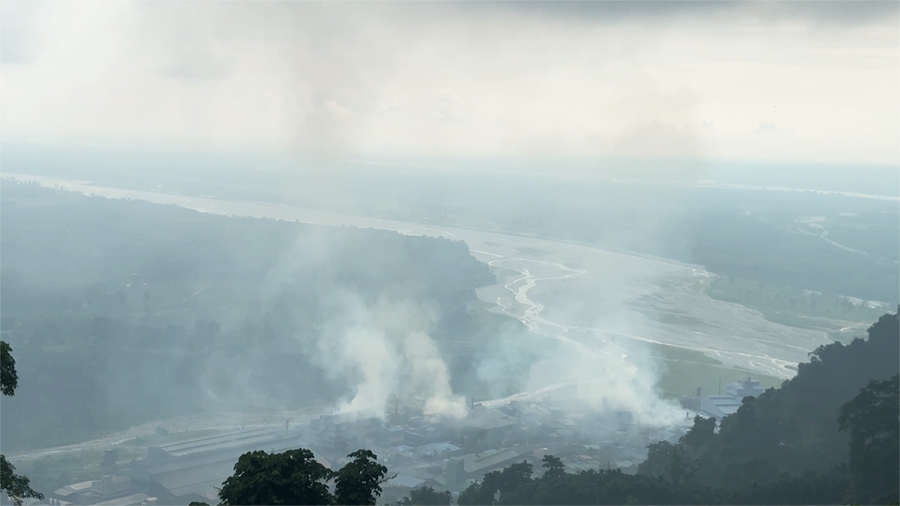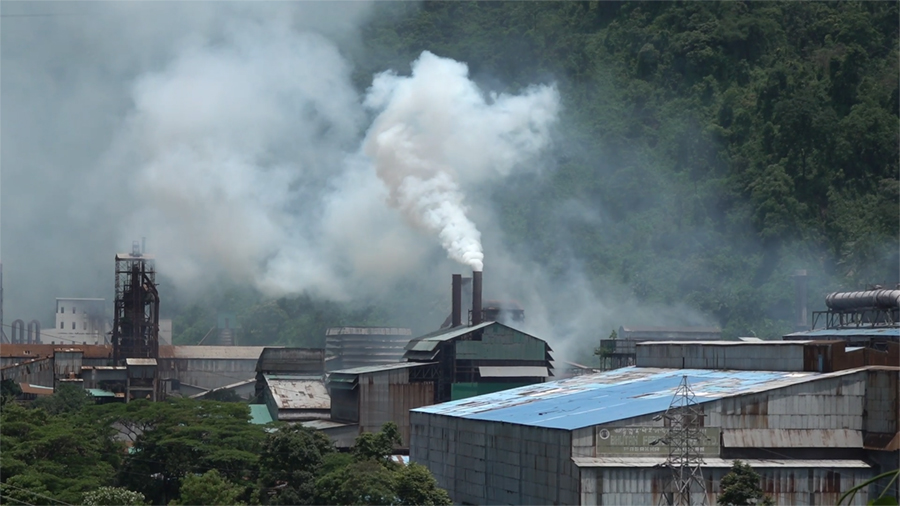
Residents living near the Pasakha Industrial Estate in Phuentshogling Thromde are once again raising concerns about factories not complying with pollution control regulations during night hours. They said standards are not being implemented at night, citing observations of thicker smoke at nighttime. According to the Department of Industry, there were instances where the factories were fined for not complying with rules.
Several villages near the Pasakha Industrial Estate have been bearing the brunt of pollution from the factories.
Although no immediate health impact can be determined from these pollutions, people said they are affecting their livelihood.
“The smoke becomes thicker at night, especially after 10 PM. We are located in between two industrial areas. We are worried about the pollution from the factories as it affects our agricultural produce. With no options, people are doing away with farming. People are now focusing on betel nut cultivation but again, it is also getting affected. We have raised the concern but the government has done nothing so far,” said Aita Singh, a resident of Sengyegang, Samphelling Gewog, Chhukha.
“We have raised the concern many times in the past to the gewog office, NA and NC members, and ministers. But nothing has been done and no solution has been drawn. We wanted the public to be compensated. Because of the pollution, our agricultural activities have been disrupted. Moreover, the CGI sheets that we use for roofing start rusting in two to three years,” said Som Bdr, another resident of Phurpaling, Phuentshogling Thromde.
“The factories are releasing more pollution at night and the smoke becomes lighter as the dawn breaks. The dusts accumulate on the leaves of the plants which is risky for our cattle. We can see a thick blanket of dust on leaves and vegetables when we wake up, especially in winter when there is no rain. We have requested the factories to control pollution but they have taken it seriously only for some time and the situation remains the same,” said Birtaman Rai, a resident of Phurpaling, Samphelling Gewog, Chhukha.
 According to Department of Industry officials, people’s claims could be true. They acknowledged that nighttime monitoring by the management of the factories and enforcement agencies is less likely compared to daytime.
According to Department of Industry officials, people’s claims could be true. They acknowledged that nighttime monitoring by the management of the factories and enforcement agencies is less likely compared to daytime.
Over the past two years, factories have been imposed fines for emitting excessive fugitive and point source emissions, as well as for non-compliance with environmental clearance terms and conditions on more than 15 instances. The fines amount to Nu 800,000.
According to officials, mechanical breakdowns, wind direction, and the quality of raw materials can also influence smoke concentration.
A senior environmental technician stated that the efficiency of pollution control systems also plays a crucial role. He assured that all factories have these systems installed. He said that they are operating continuously.
Officials added that they can monitor whether the systems are turned off through energy meters.
According to the Department of Industry, there is a lack of equipment to monitor air quality comprehensively. Presently, only one monitoring device is installed near the department office. This limitation prevents officials from identifying which factory is the primary source of pollution. The department has plans to enhance air quality monitoring equipment in the future.
Officials said the concentration of PM 2.5 which is a fine particulate matter or small dust particle, was reported to be slightly higher than the permissible limit. And this can directly affect the lungs and enter the blood.
However, the officials said it is not much of a concern for now.
The Association of Bhutanese Industries have yet to respond to BBS on the matter.
There are 49 factories in Pasakha but seven are non-operational.
Kinley Dem
Edited by Tshering Zam








